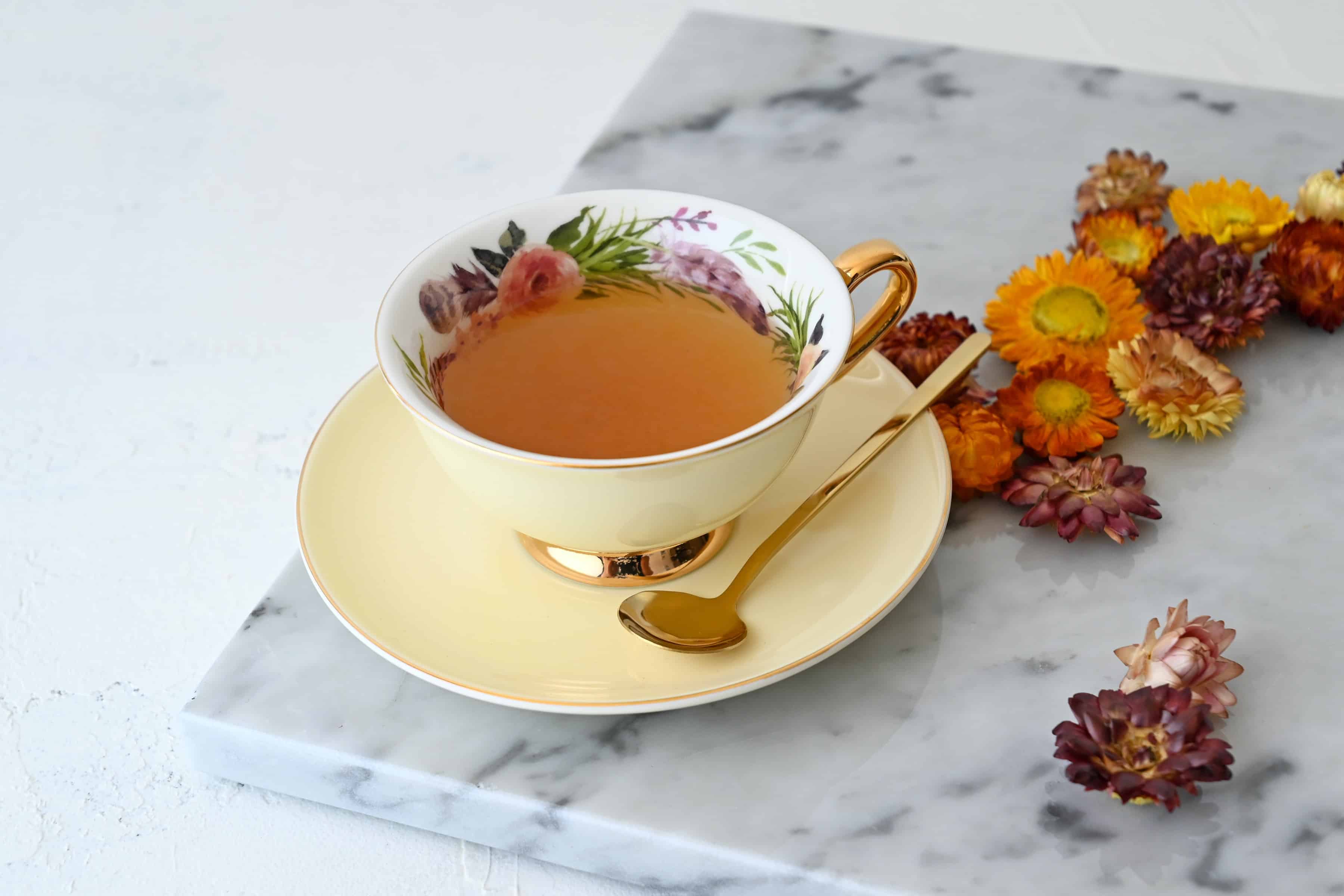
If you have trouble pooping when you go to the bathroom, try any kind of home remedy. Tea has long been used to relieve constipation problems, so today we bring you six types in particular that can help you have a better bowel movement.
Constipation is defined as having three or fewer bowel movements in a week, and stools can be hard, dry, and sometimes painful to pass. Almost everyone gets constipated sometimes, and it usually doesn't last long and isn't serious.
Eating more fruits, vegetables, and whole grains, all high in fiber, is another way to help alleviate this intestinal problem. You should also try to get enough exercise and take time to have a bowel movement when you need to.
Talk to your doctor if your bowel habits change: you should only use laxatives if a doctor says you should, and they'll also be able to tell you if any of your current medications may be causing this bowel problem.
The best tea to relieve constipation
rhubarb tea
It may be unexpected, but your grandmother's rhubarb tea can help relieve constipation. During the summer, if you have constipation, it is advisable to take fresh rhubarb for its laxative properties. You can make your own rhubarb tea at home or find it in packaged tea bags. It is also an ingredient in Essiac tea.
Although clinical evidence in humans is limited, rhubarb is considered a stimulant laxative and may also alleviate gastrointestinal dysfunction in people with illnesses.
Aloe vera tea
Some people find that aloe vera juice can be helpful in relieving constipation. These benefits can be applied to tea: The aloe found in many teas appears to have stimulant laxative properties as well.
One benefit that tea can have over juice is that it is warm: Starting your day with a warm drink can help move your stool. And in general, drinking plenty of fluids helps keep your stool soft, making it easier to pass.

senna tea
Senna is a popular herbal laxative and is generally safe and well tolerated. It belongs to a large genus of tropical flowering plants, and its flowers and fruits have been used for centuries in folk medicine to relieve constipation.
It is widely available in teas, especially those marketed to help relieve constipation. The Senna seems to have effects on colon muscle to stimulate contractions which can be beneficial in relieving constipation.
When the muscle in your colon is relaxed, it can lead to constipation. But when stimulated, that can help move materials out of your digestive system. It usually causes a bowel movement within 6 to 12 hours, so you can take it at night to stimulate a bowel movement the next morning.
However, do not take senna for more than a week without first consulting a doctor. Taking excessive doses can cause mild to moderate liver injury, but liver injury from prolonged use is rare and most cases are quickly reversed upon discontinuation of use.
Cascara Tea
The peel is normally extracted from the aged dried bark of Rhamnus purshiana, a type of buckthorn tree or shrub native to North America, and is a common therapy for constipation.
Like senna, it can cause liver damage when taken in excess and should be used for less than a week. Side effects may include abdominal cramps and electrolyte imbalance.
Along with senna, rhubarb, and aloe, the rind helps the colon move material through your digestive system. All four of these teas stimulate the muscle of the colon to contract more regularly and vigorously, but the precise mechanism by which they do this is probably different and not well defined.
Black tea or green tea
Caffeinated tea can also help you go to the bathroom, similar to how your morning coffee does.
El black tea Brewed tends to be the highest caffeinated tea, with 47 milligrams of caffeine in a cup. By comparison, brewed coffee has 96 milligrams of caffeine in one cup. The green tea it also has caffeine, but slightly less, at 28 milligrams per cup.
Caffeine serves as a stimulant for contractions or intestinal motility. That is why many people say that they poop after having their morning cup of coffee or tea. Since black tea has caffeine, you will need to watch your intake. However, you'll also benefit from its flavonoids that fight inflammation and support healthy immune function.
Black tea and green tea come from Camellia sinensis. For black tea, the leaves are dried and fermented, giving it a richer flavor and darker color.
fruit teas
Certain fruit-flavored teas might also help relieve constipation, although more research is needed.
Stone fruits such as peaches, cherries, plums, and prunes contain a sugar called sorbitol, it is not well absorbed and can actually trigger the secretion of fluid in the intestine. That can have a laxative effect.
It is not yet clear how this effect can be applied to teas, but that several teas are flavored with such fruits. It might not hurt to try them if you love the taste and are dealing with constipation, especially since the warm liquid can help itself.